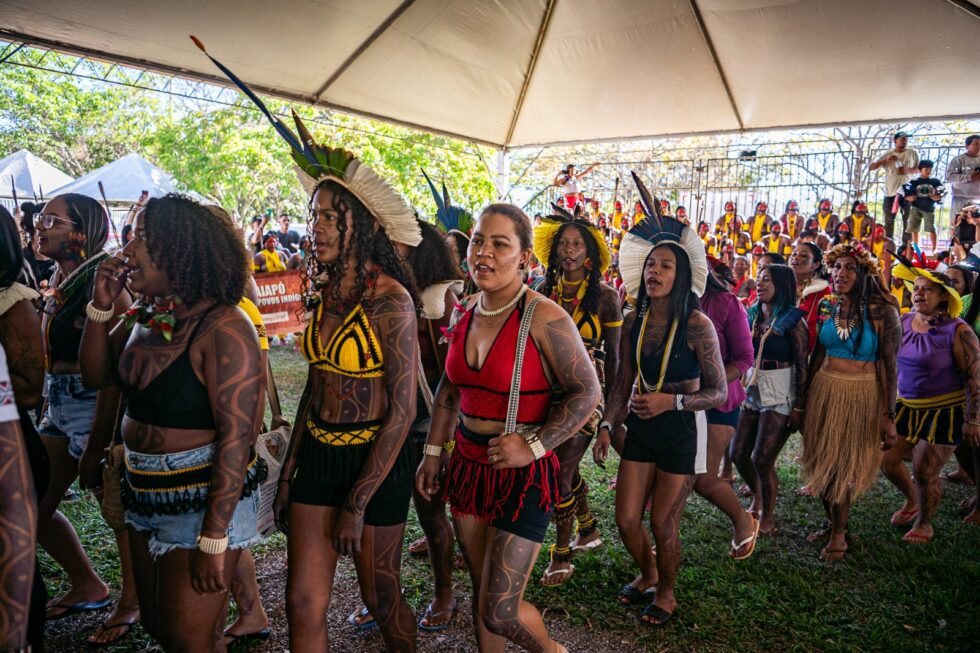Through its Small Projects Programme and in partnership with the European Union, CESE supported 20 organizations to attend the Third Indigenous Women’s March, which took place in Brasilia between 11 and 13 September 2023. This included the collective of Female Indigenous Xakriabá Warriors.
The collective was set up during events to coordinate the First Indigenous Women’s March, which took place in Brasilia in 2019. Elisângela Lopes Xakriabá, a collective member, noted that the organization’s activities began during the pandemic in order to help women from the village break with routine and occupy their minds through handicraft workshops and an exchange of knowledge that has further strengthened their culture and customs.
The Xakriabá people’s territory is located in Minas Gerais, where they are the largest ethnic group. Their population is an estimated 13 thousand people with a high population growth rate. The territory contains approximately 40 villages, including recognized areas and those being reclaimed.
In order to take Xakriabá women to the march and contribute to this arena by sharing and listening for empowerment, strengthening and autonomy, the collective organized an internal meeting within their territory to communicate and explain the importance of being present at and participating in this mobilization. “Thanks to CESE’s support and other resources, we were able to take a total of 70 women,” confirmed Karine Waridã Xakriabá, collective coordinator.

The march is a very significant moment for all these women and has gained strength, allies and supporters. During the days of the encampment, the agenda included themes such as gender equality, the defence of indigenous women’s rights, the conservation of the biomes, the demarcation of lands and the end of violence against original peoples. It is an arena for listening that has achieved significant progress in claiming the rights of indigenous women in Brazil.
The mobilization’s theme was “Women Biomes in Defence of Biodiversity through Ancestral Roots”. The act reasserted the women’s commitment to the preservation of their territories, ways of life and cultures. It was a moment that went beyond borders and approached women with objectives that united them and guided their struggles for justice and equality.

